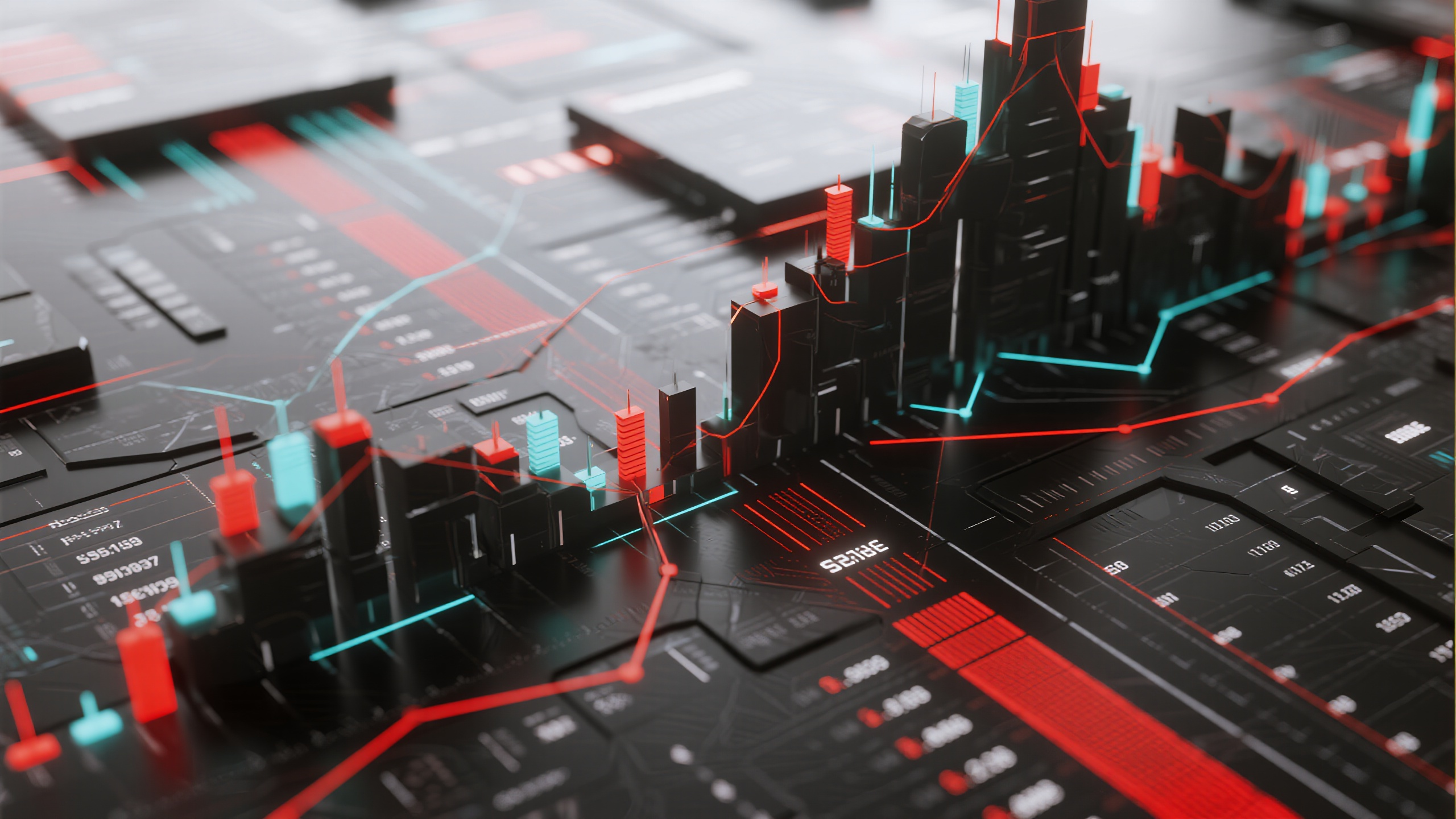The AI Revolution in Stock Trading
With the rapid advancement of technology and the growing capabilities of the internet, concepts such as artificial intelligence (AI), virtual reality, the Internet of Things (IoT), and machine learning are transforming our lives at an unprecedented pace. We are living in an era where the concept of time is being redefined, new industries are emerging, and existing workflows and daily routines are being transferred into the digital world. Among the sectors standing out in this transformation, financial technologies (fintech) lead the way.

With the rapid advancement of technology and the growing capabilities of the internet, concepts such as artificial intelligence (AI), virtual reality, the Internet of Things (IoT), and machine learning are transforming our lives at an unprecedented pace. We are living in an era where the concept of time is being redefined, new industries are emerging, and existing workflows and daily routines are being transferred into the digital world. Among the sectors standing out in this transformation, financial technologies (fintech) lead the way.
The fintech ecosystem covers sub-segments such as open banking, payment systems, insurance technologies (InsurTech), personal finance technologies (WealthTech), trading technologies (TradingTech), regulatory technologies (RegTech), and blockchain. Within this ecosystem, investment technologies, particularly robo-advising and stock trading, are gaining significant attention.
What Are Investment Technologies?
As the name suggests, investment technologies are the tools and platforms used throughout the investment process. More than just digital tools that individuals or institutions use to manage their investments, they provide a 360-degree design of the entire process from start to finish. Products like robo-advising and stock-trading enable the creation and management of portfolios without the need for a human investment advisor or expert.
For both beginner and professional investors, investment technologies meet essential needs while reducing transaction costs and offering significant advantages in terms of time efficiency and risk management.
Designed as digital tools for trading financial instruments, investment technologies can operate in all markets where pricing occurs. Whether it is stocks, foreign exchange, derivatives, or investment funds, these technologies support investors in decision-making and execution. By analyzing historical and real-time data, AI- and machine learning-powered systems play a critical role in making accurate and timely investment decisions.
AI Models in Stock Trading: Machine Learning and High-Frequency Trading
One of the most impactful areas of investment technologies is the stock market. In trading, AI models are widely used, with high-frequency trading (HFT) and machine learning being the leading approaches. These models analyze data based on specific parameters, interpret past and current price movements, generate buy/sell signals, and execute trades with precision.
High-Frequency Trading (HFT)
High-frequency trading leverages specialized infrastructure located in the exchange’s colocation facilities, enabling ultra-fast processing of exchange data such as internal messaging systems and order books. This data is used to create detailed stock boards, which are then analyzed and acted upon instantly using pre-set strategies.
Transactions in HFT occur at the microsecond level, with machines autonomously processing information and responding accordingly. Parameters can be updated, modified, or removed throughout the trading day as needed. Beyond stocks, HFT models are also applied in other markets such as derivatives.
Machine Learning
Machine learning, a subset of AI, creates models that allow machines to make decisions resembling human intelligence. Using diverse variables and methodologies, these systems generate forecasts and patterns from data. For example, stock price movements and volatility can be analyzed across countless independent variables.
The success of these models is measured against specific metrics, and the importance of each variable is categorized. Starting with data, machine learning enables a range of modeling approaches, making it a powerful forecasting tool in trading technologies.
BV Quant: AI-Powered HFT Fund Delivering Financial Engineering and High Returns
Since its inception, Boğaziçi Ventures has led the way in technology and digital transformation solutions. Through its subsidiary BV Portföy, it has established funds that both invest in and are managed by advanced technology.
The latest product of the Boğaziçi Ventures and BV Portföy partnership is BV Quant, a fund fully powered by the technological infrastructure of LT-Liquidity Trading, one of Turkey’s leading technology companies.
BV Quant is an Absolute Return-Oriented Statistical Arbitrage Fund that harnesses the capabilities of AI and machine learning to maximize returns.
While many algorithmic funds exist in the market, what differentiates them is the AI’s ability to learn, the expertise of the managing team, and the ongoing improvements to the models. Additionally, the capacity to identify opportunities quickly and place orders at the nanosecond level makes algorithmic funds exceptionally powerful.
BV Quant possesses all these features and accepts a limited number of investors.
For more details, you can reach us at [email protected] or visit our website.